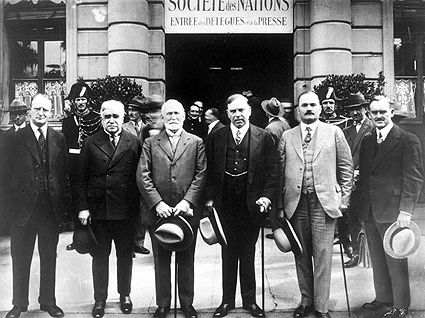Article
Le Patriote
Boîte à chansons opened in January 1965 in east Montreal by Yves Blais and Percival Bloomfield. Until 1972 it was the only establishment of its kind in Quebec to present singer-songwriters seven nights a week.

Enter your search term
Signing up enhances your TCE experience with the ability to save items to your personal reading list, and access the interactive map.
Create AccountArticle
Boîte à chansons opened in January 1965 in east Montreal by Yves Blais and Percival Bloomfield. Until 1972 it was the only establishment of its kind in Quebec to present singer-songwriters seven nights a week.
"https://www.thecanadianencyclopedia.ca/images/tce_placeholder.jpg?v=e9dca980c9bdb3aa11e832e7ea94f5d9" // resources/views/front/categories/view.blade.phphttps://www.thecanadianencyclopedia.ca/images/tce_placeholder.jpg?v=e9dca980c9bdb3aa11e832e7ea94f5d9

Article
League for Social Reconstruction, organization of left-wing intellectuals, founded 1931-32 in Montréal and Toronto, largely in response to the GREAT DEPRESSION.
"https://www.thecanadianencyclopedia.ca/images/tce_placeholder.jpg?v=e9dca980c9bdb3aa11e832e7ea94f5d9" // resources/views/front/categories/view.blade.phphttps://www.thecanadianencyclopedia.ca/images/tce_placeholder.jpg?v=e9dca980c9bdb3aa11e832e7ea94f5d9

Article
The League of Nations was an organization of 63 countries established in 1919, after the First World War. Canada was a founding member. The League ultimately failed in its aim of collective security. It was replaced by the United Nations at the end of the Second World War. However, the League of Nations did establish a new model for international organizations. League membership brought Canada its first official contact with foreign governments and helped to establish its position as a sovereign state. It also introduced Canada to the opportunities and challenges of international co-operation and peacekeeping.
"https://d3d0lqu00lnqvz.cloudfront.net/media/media/51b027bf-71b7-4da0-b10b-083506ad8a36.jpg" // resources/views/front/categories/view.blade.phphttps://d3d0lqu00lnqvz.cloudfront.net/media/media/51b027bf-71b7-4da0-b10b-083506ad8a36.jpg

Article
The League of Nations Society in Canada was founded 1921 to promote international peace by developing public knowledge of and support for the League of Nations. With headquarters in Ottawa, it operated until 1942. Its presidents included such public figures as Sir Robert Borden, Sir George Foster, Ernest Lapointe and Cairine Wilson. John W. Dafoe, Newton W. Rowell and J.S. Woodsworth served on its national council. The society's activities were primarily promotional and educational. It distributed league publications and its own monthly, Interdependence, and sponsored speaking tours and radio broadcasts by supporters. It was the first Canadian organization to encourage public interest in and understanding of international affairs.
"https://www.thecanadianencyclopedia.ca/images/tce_placeholder.jpg?v=e9dca980c9bdb3aa11e832e7ea94f5d9" // resources/views/front/categories/view.blade.phphttps://www.thecanadianencyclopedia.ca/images/tce_placeholder.jpg?v=e9dca980c9bdb3aa11e832e7ea94f5d9

Article
During the SOUTH AFRICAN WAR 90 officers and men of the Royal Canadian Dragoons were assigned to cover the retreat of a British infantry column under attack by several hundred Boer horsemen near Leliefontein farm, east Transvaal.
"https://www.thecanadianencyclopedia.ca/images/tce_placeholder.jpg?v=e9dca980c9bdb3aa11e832e7ea94f5d9" // resources/views/front/categories/view.blade.phphttps://www.thecanadianencyclopedia.ca/images/tce_placeholder.jpg?v=e9dca980c9bdb3aa11e832e7ea94f5d9

Article
Lend-Lease, an Act of the US Congress passed March 1941, providing for the transfer of American war materials to Britain and its allies in return for theoretical deferred payment.
"https://www.thecanadianencyclopedia.ca/images/tce_placeholder.jpg?v=e9dca980c9bdb3aa11e832e7ea94f5d9" // resources/views/front/categories/view.blade.phphttps://www.thecanadianencyclopedia.ca/images/tce_placeholder.jpg?v=e9dca980c9bdb3aa11e832e7ea94f5d9

Article
Les Soirées canadiennes was a magazine founded in 1861 by H.R. CASGRAIN, A. GÉRIN-LAJOIE, F.A.H. LaRue and J.C. Taché, which published assorted "collection[s] of national literature" in monthly instalments.
"https://d3d0lqu00lnqvz.cloudfront.net/media/media/a75df73a-e1e0-4b27-ba7a-76631cfc6a0e.jpg" // resources/views/front/categories/view.blade.phphttps://d3d0lqu00lnqvz.cloudfront.net/media/media/a75df73a-e1e0-4b27-ba7a-76631cfc6a0e.jpg

Editorial
The following article is an editorial written by The Canadian Encyclopedia staff. Editorials are not usually updated.
"https://d3d0lqu00lnqvz.cloudfront.net/media/media/c8d795a7-4ea6-4c7e-aae4-9502d66e96b5.jpg" // resources/views/front/categories/view.blade.phphttps://d3d0lqu00lnqvz.cloudfront.net/media/media/c8d795a7-4ea6-4c7e-aae4-9502d66e96b5.jpg

Article
The Letters Patent Constituting the Office of Governor General and Commander-in-Chief of Canada, usually shortened to Letters Patent, 1947, was an edict issued by King George VI that expanded the role of the governor general, allowing him or her to exercise prerogatives of the sovereign. While Letters Patent delegated Crown prerogatives to the governor general, the sovereign remains Head of State.
"https://d3d0lqu00lnqvz.cloudfront.net/Letters_Patent_1947_page1.png" // resources/views/front/categories/view.blade.phphttps://d3d0lqu00lnqvz.cloudfront.net/Letters_Patent_1947_page1.png

Macleans
Every Barbara Walters celebrity interview has a signature moment, the one where the interviewee's lower lip trembles and the tears start to flow. Devotees of the form were heartened to see that her televised session with Monica Lewinsky was no exception.This article was originally published in Maclean's Magazine on March 15, 1999
"https://www.thecanadianencyclopedia.ca/images/tce_placeholder.jpg?v=e9dca980c9bdb3aa11e832e7ea94f5d9" // resources/views/front/categories/view.blade.phphttps://www.thecanadianencyclopedia.ca/images/tce_placeholder.jpg?v=e9dca980c9bdb3aa11e832e7ea94f5d9

Macleans
Monica Beach, as the tiny little strand of concrete park across from Washington's E. Barrett Prettyman Courthouse has come to be known, was packed to overflowing in honor of its namesake.This article was originally published in Maclean's Magazine on August 17, 1998
"https://www.thecanadianencyclopedia.ca/images/tce_placeholder.jpg?v=e9dca980c9bdb3aa11e832e7ea94f5d9" // resources/views/front/categories/view.blade.phphttps://www.thecanadianencyclopedia.ca/images/tce_placeholder.jpg?v=e9dca980c9bdb3aa11e832e7ea94f5d9

Article
Between the 1950s and the 1990s, the Canadian government responded to national security concerns generated by Cold War tensions with the Soviet Union by spying on, exposing and removing suspected LGBTQ individuals from the federal public service and the Canadian Armed Forces. They were cast as social and political subversives and seen as targets for blackmail by communist regimes seeking classified information. These characterizations were justified by arguments that people who engaged in same-sex relations suffered from a “character weakness” and had something to hide because their sexuality was considered a taboo and, under certain circumstances, was illegal. As a result, the RCMP investigated large numbers of people. Many of them were fired, demoted or forced to resign — even if they had no access to security information. These measures were kept out of public view to prevent scandal and to keep counter-espionage operations under wraps. In 2017, the federal government issued an official apology for its discriminatory actions and policies, along with a $145-million compensation package.
"https://d3d0lqu00lnqvz.cloudfront.net/media/media/24561e5f-6a40-423a-aae3-8324fa0b339e.jpg" // resources/views/front/categories/view.blade.phphttps://d3d0lqu00lnqvz.cloudfront.net/media/media/24561e5f-6a40-423a-aae3-8324fa0b339e.jpg

Article
Library and Archives Canada. Federal government department established in 2004; formerly National Library of Canada and Public (later National) Archives of Canada.
"https://www.thecanadianencyclopedia.ca/images/tce_placeholder.jpg?v=e9dca980c9bdb3aa11e832e7ea94f5d9" // resources/views/front/categories/view.blade.phphttps://www.thecanadianencyclopedia.ca/images/tce_placeholder.jpg?v=e9dca980c9bdb3aa11e832e7ea94f5d9

Article
Literary History in English 1620-1867The writing that critics identify as the earliest ENGLISH-LANGUAGE LITERATURE in Canada was produced by COLONIAL governors, soldiers, MISSIONARIES, settlers, European EXPLORERS and travellers, NEWSPAPER journalists, and community figures who in time began to consider the BRITISH NORTH AMERICAN colonies their home. Many were WOMEN. Few writers, to start, considered themselves "Canadian" (a term early reserved for the francophone settlers in QUEBEC). Most wrote for European readers (SeeFOREIGN WRITERS ON CANADA...
"https://www.thecanadianencyclopedia.ca/images/tce_placeholder.jpg?v=e9dca980c9bdb3aa11e832e7ea94f5d9" // resources/views/front/categories/view.blade.phphttps://www.thecanadianencyclopedia.ca/images/tce_placeholder.jpg?v=e9dca980c9bdb3aa11e832e7ea94f5d9

Article
With Confederation came immediate calls for Maritime separation but also a quickened interest in the growth of a national culture. Journalists and academic essayists earnestly disputed Canada's political destiny.
"https://www.thecanadianencyclopedia.ca/images/tce_placeholder.jpg?v=e9dca980c9bdb3aa11e832e7ea94f5d9" // resources/views/front/categories/view.blade.phphttps://www.thecanadianencyclopedia.ca/images/tce_placeholder.jpg?v=e9dca980c9bdb3aa11e832e7ea94f5d9
